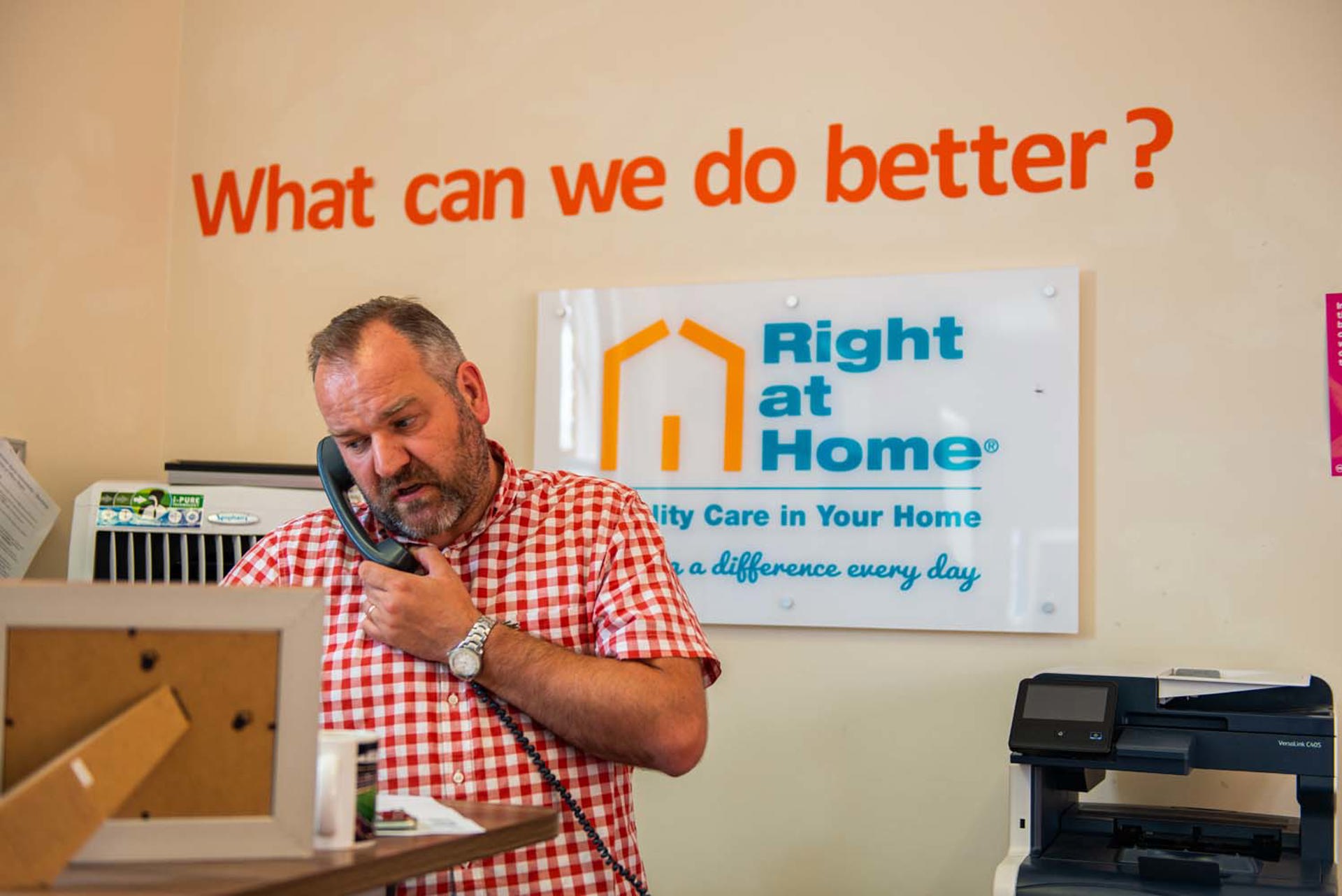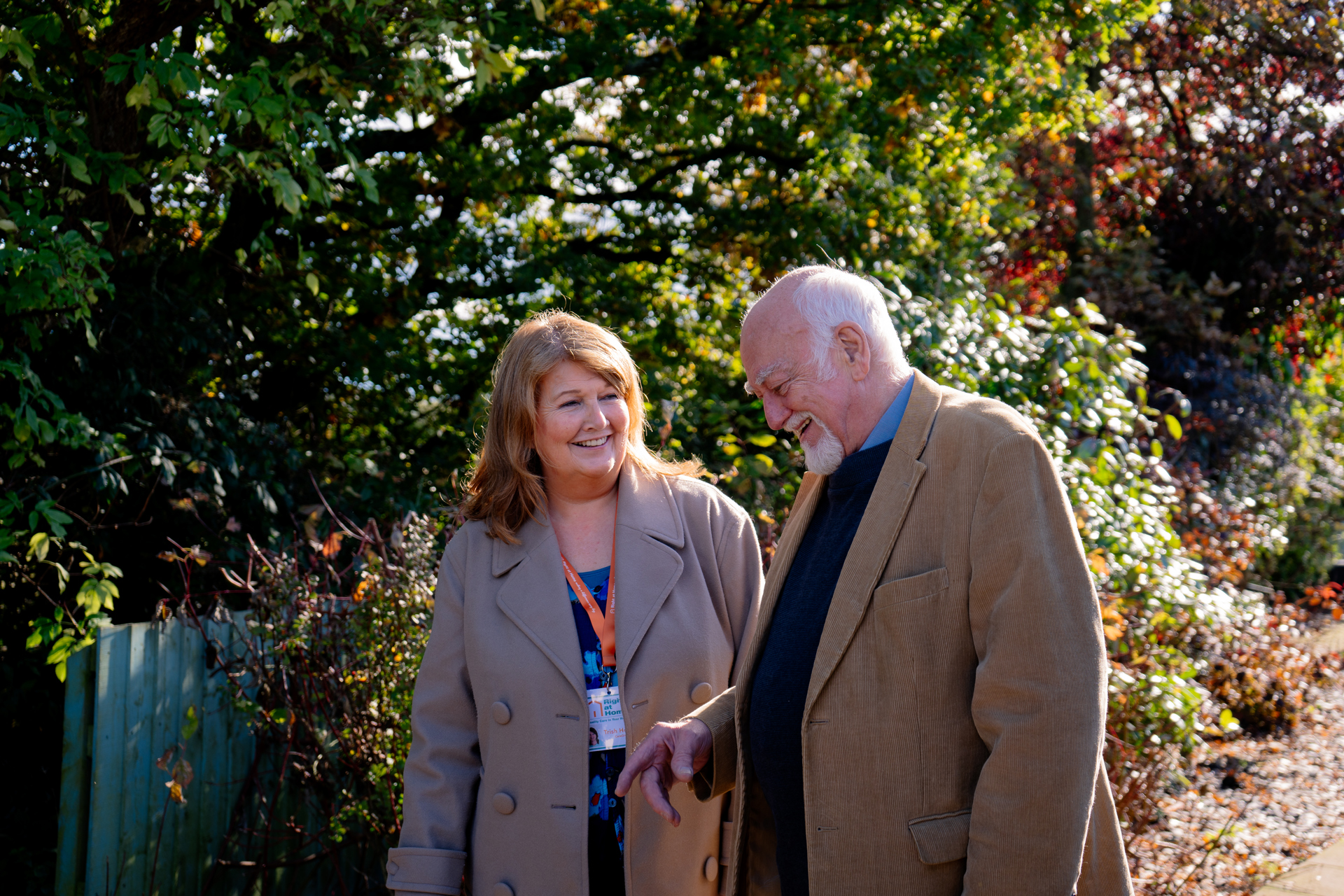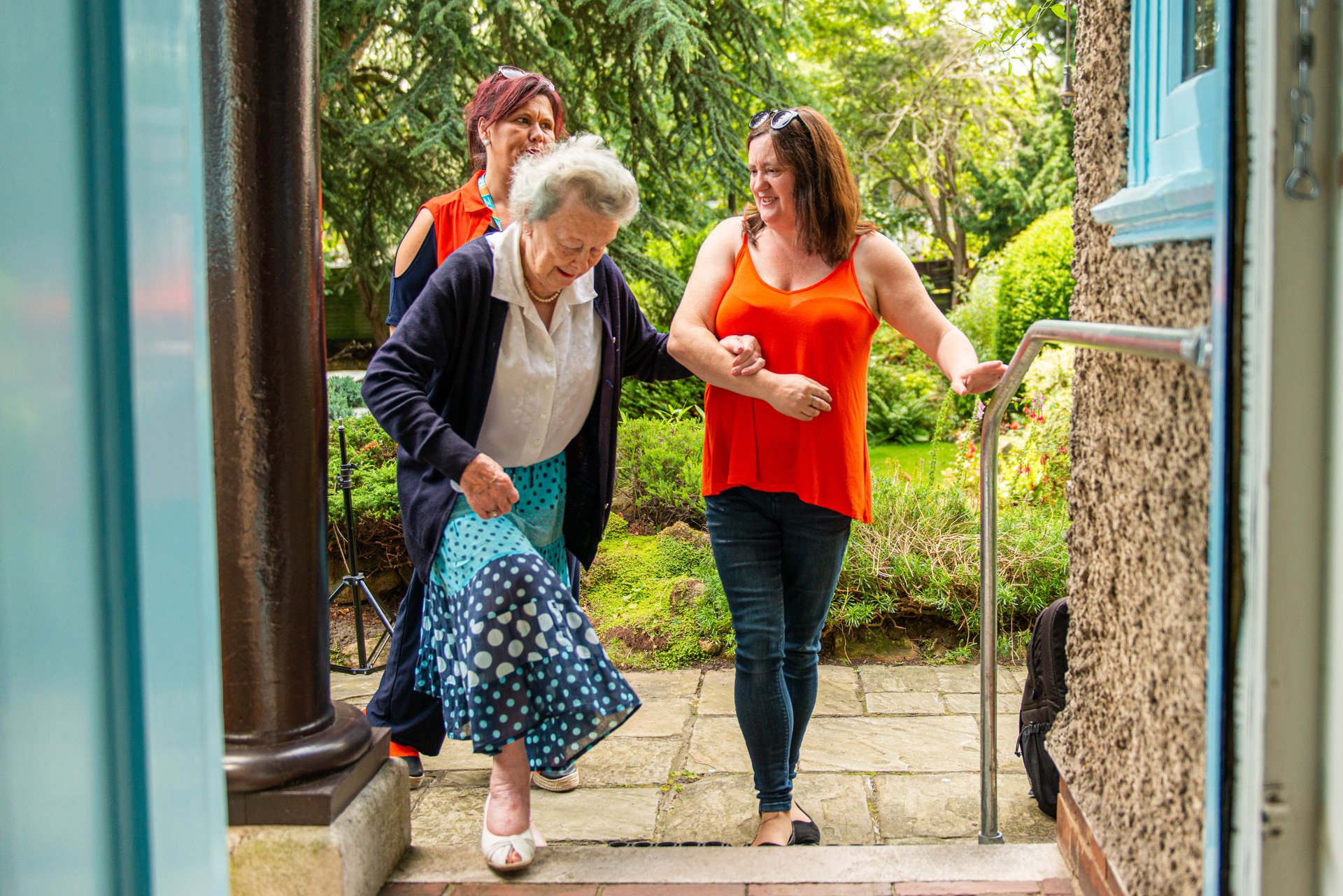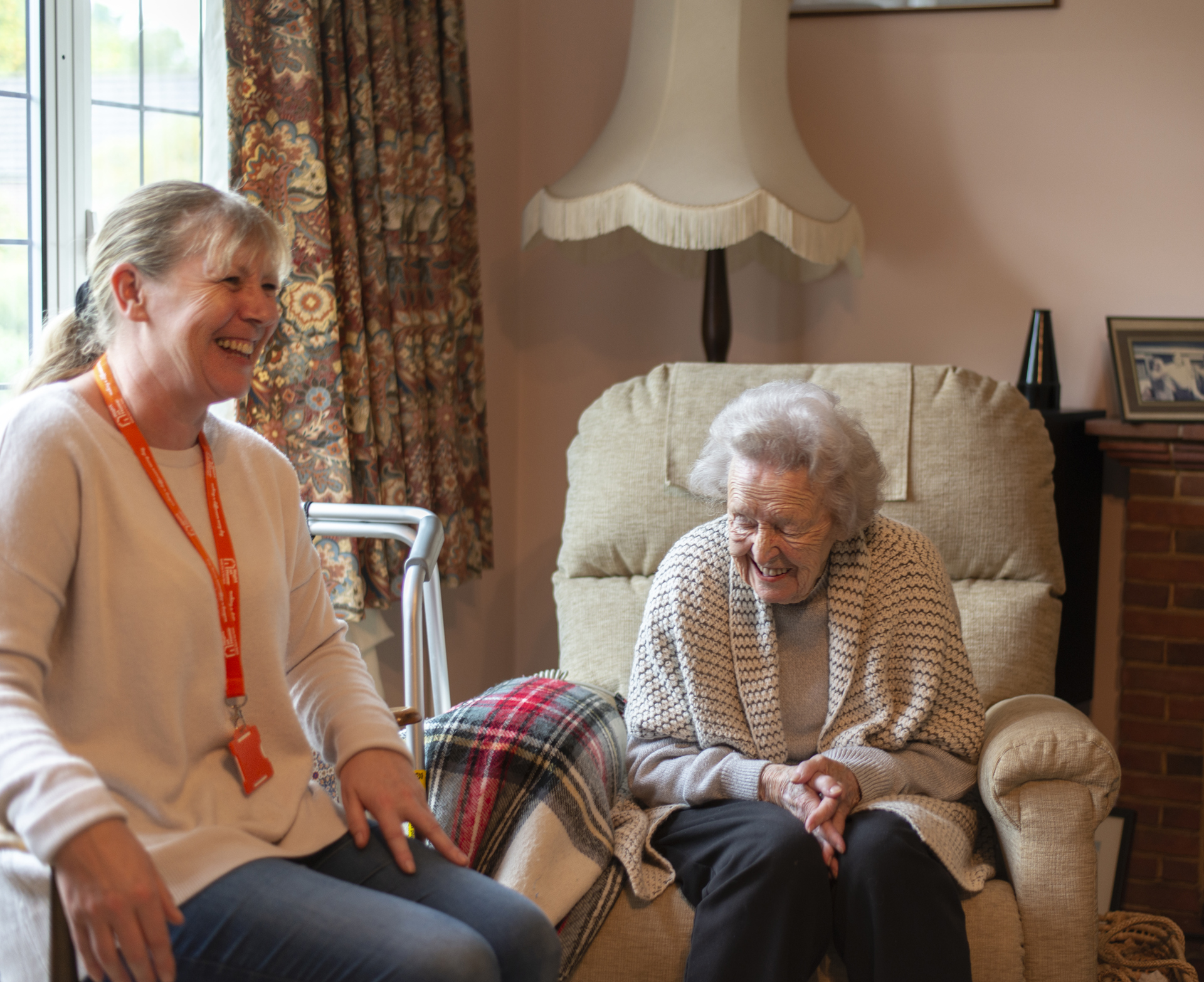
Cost of Care at Home in Central London: Everything You Need to Know
Published: 07/07/2025
One of the first things families think about when considering homecare in Central London is the cost — that’s perfectly natural, as you want to make sure your loved one gets the right care without putting financial strain on the family. Understanding how much care at home costs and knowing what funding options are available can help you plan confidently and prepare for both immediate needs and ongoing care arrangements.
At Right at Home Central London, we believe quality care at home can be a more affordable and personalised alternative to moving into residential care. Below, we explain the typical cost of care at home.

Care costs can vary by location
Care at home costs and local authority funding differ across regions. To get a clearer picture of care expenses in your area, you can use the Which? Cost of Care Calculator. This helpful tool lets you check care fees in your location and see if you qualify for council funding.
Comparing homecare and live-in care costs
Both options provide valuable support, but the pricing reflects the level of care provided.
- Live-in care costs - Live-in care offers continuous support, with a trained CareGiver staying in the home to assist with daily needs. It’s ideal for those who need ongoing help with personal care and medication, giving both the Client and their families added peace of mind. The cost of live-in care at home starts from around £900 to £1,400 per week, though this can rise to £2,000 per week for more complex care needs.
- Hourly cost of care at home - Regular homecare is usually charged by the hour. In the UK, the hourly cost of care at home typically ranges between £23 and £34. Rates may be higher on weekends or bank holidays, as some providers apply additional charges during these periods.
Hourly care is a suitable option for those who need help with daily activities such as meal preparation or household tasks, but do not require round-the-clock assistance.
Homecare services can be tailored to your situation. This ensures that you receive the level of support you need while keeping costs manageable.


Financial support for homecare
Financial support can ease some of the costs linked to homecare. Here are some key ways families in Central London can access funding:
- Local authority support: In England, individuals with assets (excluding their property) below £23,250 may qualify for council-funded care. You can use tools such as the Which? Cost of Care Calculator to check your eligibility.
- Benefits and allowances: Financial support such as Carer’s Allowance or Attendance Allowance can also help with care-related expenses.
If you are unsure about eligibility or what support you can access, consider requesting a financial assessment from your local council.
Funding and planning
At Right at Home Central London, we create personalised care plans that are tailored with your input and your family’s involvement. We also guide you through available funding options to help manage care at home costs. Depending on your circumstances, you may be eligible for the following:
Attendance Allowance
Attendance Allowance is the Government’s tax-free benefit for people of State Pension age or older who require help with personal care due to a health condition or disability. This benefit is not means-tested and is intended to assist with extra costs related to care needs. It is available for individuals over 65 who have physical or mental disabilities.
Attendance Allowance is paid depending on the support level needed, usually at two rates. You may be entitled to either £73.90 or £110.40 per week if you meet both of these conditions:
- You are of State Pension age or older.
- You have a mental or physical health condition or disability that requires support with personal care.
The lower rate of £73.90 per week is for individuals who need regular assistance or monitoring either during the day or at night. You may receive the higher rate of £110.40 per week if you need help during both the day and night, or if you have a terminal illness.
Attendance Allowance doesn’t apply to mobility-related costs, but it can boost your eligibility for other benefits like Council Tax Reduction or Pension Credit. You can still qualify even if you don’t have someone currently providing care.
Carer’s Allowance
If you care for someone for a minimum of 35 hours a week and they receive certain qualifying benefits, you could be entitled to £83.30 per week through Carer’s Allowance. You do not need to be related to the person or live with them, but only one person can claim Carer’s Allowance for the same individual. This may be a helpful option for family members providing full-time care in Central London.
To qualify for Carer’s Allowance, you must:
- Be aged 16 or over
- Earn £196 per week or less after certain deductions. This threshold may change, so always check the most up-to-date criteria
- Provide a minimum of 35 hours of care each week to someone who receives certain benefits (such as Attendance Allowance or the highest or middle rate of Disability Living Allowance)
- Not be enrolled in full-time education or studying more than 21 hours per week
Carer’s Allowance is considered a taxable benefit, so it may affect other financial support the person you care for or you receive. You only pay tax on Carer’s Allowance if your overall income exceeds your Personal Allowance.
You can choose to receive your payments every four weeks or weekly in advance. Either way, the allowance is transferred directly into your chosen account, such as a bank account.
NHS Continuing Healthcare funding
If your loved one requires ongoing care due to illness or a serious injury, you may be eligible for free NHS Continuing Healthcare. This funding is intended for people who need regular healthcare support, rather than help with day-to-day social care tasks.
NHS Continuing Healthcare can cover:
- Medical care
- Accommodation costs
- Support for carers if care is provided at home
- Personal care needs
- Personal health budgets
NHS-provided personal health budgets give you more say in how your loved one’s healthcare is delivered. They allow you to take greater control over decisions about their support and care.
These budgets can either be self-managed or overseen by the NHS team or a third-party organisation. If you decide to manage it yourself, the NHS will provide you with direct payments, which you can use to arrange and pay for the services that meet your specific requirements.


Ways to manage your personal budget
Once your personal health budget is confirmed, there are different ways to manage how it’s used:
- The local council keeps control of the funds and arranges care services for you. This may suit you if you prefer not to handle the details of arranging care.
- If you want full control, the funds are paid directly to you or a trusted person you nominate. This offers the most freedom in choosing and managing your care services.
- The funds are given to an approved organisation, such as a care provider, which will manage your care based on your agreed care plan. Some organisations may charge for this service.
You can also combine these options by having the council manage part of your budget while the rest is paid to you as direct payments to manage care at home costs.
Direct payments
Direct payments give your loved one more control over how their care is arranged and delivered. With this approach, they can:
- Hire CareGivers or personal assistants based on their preferences (such as language, personality, or experience with specific conditions)
- Maintain consistency with a small, familiar team that helps build trust and provides stability
- Arrange care around their daily routines, whether that’s morning assistance, evening help, or anything in between
- Use their budget for social activities or companionship services that reduce isolation and support emotional well-being.


Social services funding
Social services funding is a means-tested support option for individuals with less than £23,250 in savings. If your savings fall below this amount, you can contact your local Adult Social Services team to request a Community Care Assessment.
If the assessment shows you qualify for council-funded care, the local authority will arrange a care package. Keep in mind that the hourly funding rate for homecare services varies by location, and it may not cover the full cost of high-quality care from providers like Right at Home Central London.
Planning your homecare
Families across Central London trust us to help their loved ones stay independent while receiving the care they deserve. Contact us today for a personalised quote and discover how our trained, compassionate CareGivers can support your family.
